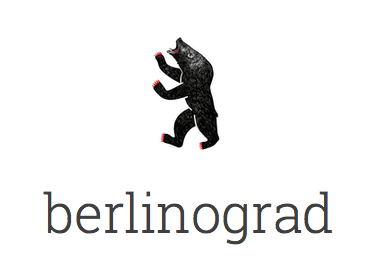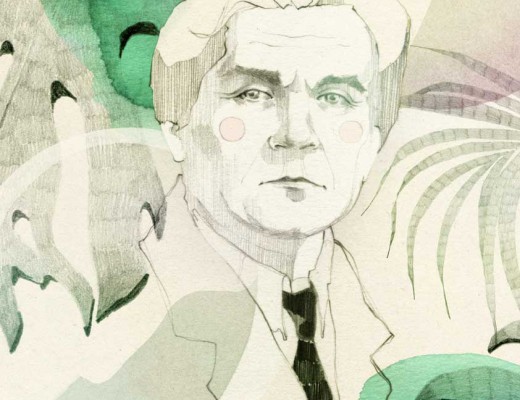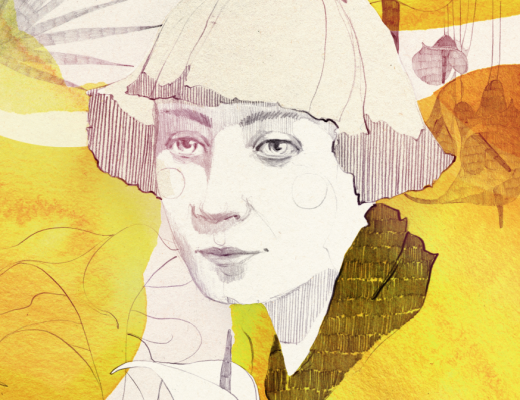Kseniya Boguslavskaya and Ivan Puni are among the most important representatives of the Russian avantgarde. Their ideas shaped the theoretical and practical course of this art epoch, and that also outside the borders of Moscow or St Petersburg, namely first in Berlin and later in Paris, where they built together with other artists a Russian bohemian diaspora and gave life to their aesthetic ideas. Both lived in Paris until their death.
Ani Menua:
Kseniya, Ivan, so nice to finally see you again! How terribly long you sometimes plan to spend an evening together … I brought wine and that’s for you!
Kseniya Boguslavskaya:
Oh … my dear, thanks for those beautiful flowers, where did you get them?
A.M.:
I collected them myself, I love wild flowers and thought maybe you also like them …
K.B.:
They are terrible! (Laughing…) How could I not love them?
Ivan Puni:
Let’s have a toast: To a beautiful evening and to love, cheers!
A.M.:
How are you, do you have news from Russia?
I.P.:
The situation is getting more and more terrible, those who can flee leave the country and the others are trapped there. Everything that defines us as human beings is stolen from us bit by bit. What would we be if we no longer had art – it is what keeps our mind alive, we must defend it with all one’s strength and maintain its freedom.
A.M.:
I recently read the Manifesto on Suprematism and I must confess to you that I did not realize that you both had a significant impact on its formulation … Often you associate Suprematism only with Mr. Malevich …
I.P.:
Especially Kseniya made a big contribution.
K.B.:
We developed this theory together and wrote it down as members of the “Supremus” movement, whose founder is Kazimir Malevich.
A.M.:
How can you explain the idea of Suprematism?
K.B.:
Its theory is about the radical renunciation of academic norms of fine arts, which basic principles are based on the imitation of nature. But we design a whole new world of representation by elevating it into abstract geometrical forms, thereby gaining more dimensions in which art can expand.
I.P.:
Cubism, Futurism and Suprematism are dusting away the conventional ideas of art. They usher in a completely new aesthetic that allows an object to be broken down to its pure idea to assert it as Supremus (the Supreme). This results in a dissolution of boundaries that was previously unthinkable.
A.M.:
What do you think is Berlin susceptible to this philosophy?
K.B.:
Berlin is susceptible to so many ideas and, above all, to any kind of people. What would we all do without Berlin? Berlin is not a caring, but a loving mother. It gives us hope and hope for life itself, for a little joy and appreciation for something you may call your home.
I.P.:
In addition, the harsh wind of Berlin is healing for the soul. It seems it blows away all that is unnecessary for us, as if it simply strips off any self-construct that we might have imposed on ourselves. It is not possible to resist to that power of cities honesty. Berlin is like a forced cure for the spirit.
A.M.:
What are you dreaming of?
K.B.:
I would love to dream more, but I’m afraid the time, we are living now, is killing each of my dreams. We must understand that we are in a struggle for survival against the devil and that we can only defeat him if we unite and use all our powers. Yes, I do dream that we artists are changing the world together for the better. Every artist must use his genius to that matter. But first, every artist should free himself from his egocentrism, which seems to be the bigger challenge.
I.P.:
As an artist, one must formulate the eternal validity of his work to the premise and from there shape his world in which man may be human, meek and vulnerable, without risking being destroyed. We humans are ignorant and careless towards ourselves, which leads to a series of problems that lead to inevitable catastrophes. A man who does not respect all people equally despises not only himself, but also the nature that born him. Contempt, ignorance, arrogance or hatred are toxic. I wish we all could think more about it. We should be thankful that there is art. It saves us from mental hunger and from embarrassing and blunting emotionally. It sensitizes our eyes to beauty, although we cannot explain it to ourselves why, and releases energy, which we can use to create.
Ani Menua met Ivan and Kseniya in the gallery “Der Sturm”, where the couple is preparing for their upcoming exhibition in September 1921.





No Comments